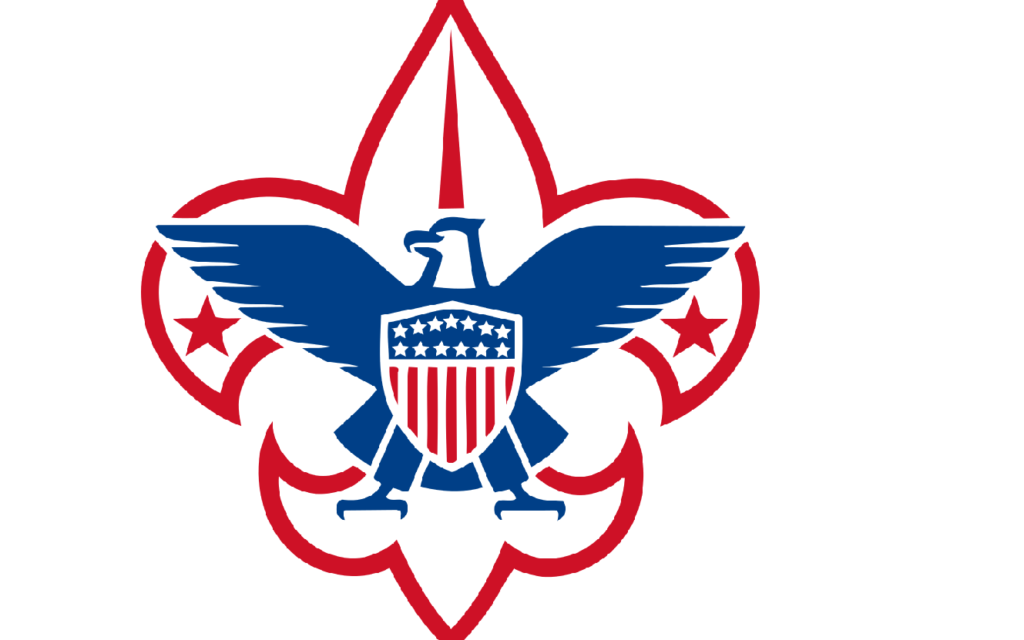Rabbi Taking Stand Against Scout Policy
Following a national trend, Temple Kehillat Chaim has become the latest Jewish organization to distance themselves from the Boys Scouts of America (BSA) in response to the group’s anti-gay policies.
 “We decided that we would no longer continue to recognize the [Judaic studies] awards…and [no longer] call the students up to the pulpit in order to acknowledge them,” said Kehillat Chaim’s Rabbi Harvey Winokur.
“We decided that we would no longer continue to recognize the [Judaic studies] awards…and [no longer] call the students up to the pulpit in order to acknowledge them,” said Kehillat Chaim’s Rabbi Harvey Winokur.
Winokur made it clear that such protest towards the BSA solely concerns matters on the pulpit and during services. The temple’s board of trustees continues to set policy for the overall congregation; thus, issues such as the synagogue’s acceptance or refusal to host Boy Scout troops remains a responsibility of the trustees.
Get The AJT Newsletter by email and never miss our top stories Free Sign Up
The BSA has long upheld discriminatory practices against openly gay individuals and has had its right to do so affirmed in court (see the case of Boy Scouts of America v. Dale in 2000). The organization’s anti-gay stance was brought into public view again last July after a two-year study revisited the controversial issue.
Still, it was not until October’s release by the Oregon Supreme Court of “The Perversion Files” – once-private material which contained a list of the names of openly gay Scout Leaders alongside those linked to instances of pedophilia – that Winokur made the choice to at last begin distancing his synagogue from the BSA.
His timing is also significant with regards to his congregation. As no TKC member is currently in the process of working towards a Judaic Studies badge, no work will go to waste.
“We wanted it to be cut and dry going forward,” Winokur said. “It’s not as though we’re going to go to a child and say, ‘Well, I know you’re working on an award with us, but now you can’t get a pin.’”
Furthermore, Winokur emphasizes that Scouts will continue to be provided assistance when looking to earn a badge in Judaic studies, even though the temple will not formally recognize the achievement.
“We just felt that it was something separate to support a student…but that when it came to us acting as sort of substitute for Boy Scout Leaders and actually getting a pin and putting it on the child, that we didn’t think that that was appropriate for us,” said Winokur.
Three months prior to his decision, the rabbi researched how other congregations around the country were handling the issue. He could find no consensus.
“It was very clear that the autonomous nature of Jewish life was impacting each and every congregation’s decision,” he said. “Sometimes the rabbi made a decision, and sometimes it was the board committee – it gave us no guidance whatsoever.”
Formal Jewish involvement with the BSA dates as far back as 1916; the National Jewish Council on Scouting was founded in 1926 by Dr. Cyrus Adler. Today, Jewish organizations sponsor some 277 of the nearly 124,000 Boy Scout troops and Cub Scout packs nationwide.
The relationship between the BSA and the Jewish community remained largely stable until BSA v. Dale. In 2001, the Religious Action Center of Reform Judaism along with the Joint Commission on Social Action of the Reform movement encouraged Reform synagogues to refrain from sponsoring Scout troops.
Then, following the BSA’s reaffirmation of their policy earlier this year, chairman of the National Jewish Committee on Scouting A.J. Kreimer released a statement expressing his disappointment.
“This position has taxed Scouting’s relationship with the Jewish community,” Kreimer wrote.
Also in reaction to the BSA’s discriminatory policies, Louisiana synagogue The Touro withdrew from participation in the Scouts’ annual “Ten Commandments Hike” to places of worship in the community, and New Jersey Jewish day school The Golda Och Academy announced that it will no longer host troops as of this October.
It would seem most of the Jewish community is in agreement with such dissatisfaction, but some feel that protesting will only negatively affect Jewish Scouts without producing results.
“I do believe it’s worth it, to have some conviction,” said local Scout Leader Leslie Litt, “But the problem is, we are just such a minority that the BSA is not going to change their policies just based on 1 percent of the entire group.”
Although their influence may be limited, the number of Jewish organizations actively objecting to the BSA’s anti-gay stance continues to rise.
“We as a clergy – myself and the cantor – would continue to work with students who want to work on religious awards,” Winokur said. “But we would not be the ones to pin on or present the patches or pins, whether or not we were on the pulpit or off the pulpit.”
BY ELIZABETH FRIEDLY / Assistant Editor





comments